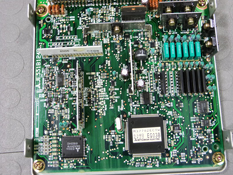Is Your Car Spying on You?
Did you know your car may be recording every move you make behind the wheel?
And that this information could possibly be used as evidence against you in an insurance claim or law case?
About 96 percent of all new vehicles sold in the U.S. have built-in Event Data Recorders – or EDRs. Now the National Highway Traffic Safety Administration has proposed that all new passenger vehicles must come equipped with EDRs by September 2014.
EDRs are the size of cigarette packs and work like black boxes in airplanes. Auto makers have used information gleaned from data recorders since the 1990s to assess the performance and improve the safety of their cars and trucks. In addition to almost all new cars, an estimated 150 million older vehicles have EDRs.
What Information Is My Car’s Black Box Collecting?
Event data recorders collect a treasure trove of vital information like:
- Seat belt use
- Speed
- Steering
- Braking
- Air bag deployment
The data is used not only by auto manufacturers but also by safety officials, police and insurance companies to aid in auto accident investigations.
EDRs are connected to your vehicle’s computer network. A continuous flow of data from the various systems in your car are scooped up and stored in the EDR.
The National Highway Traffic Safety Administration says black boxes provide important clues about how crashes occur and what can be done to prevent them.
Increasingly, though, concerns are being raised about the privacy of the information gathered by EDRs. There are even questions about who owns the black box – you, the EDR maker, the auto manufacturer or someone else?
Six Important Privacy Questions About EDRS
- Should consumers be fully informed about the EDRs in vehicles they purchase? Right now, you might find a few sentences on EDRs in your owner’s manual. Otherwise, car makers have no legal obligation to disclose specific details about the EDR in your car.
- How can EDR data be used? At present, there are no clear, consistent guidelines. More than a dozen states have passed laws saying the data belongs to the car owner. But most of these laws have a loophole that lets the police, insurance investigators and attorneys have access to the information without a subpoena or court order.
- What about personal privacy? This is a major concern. Consumer advocates worry that sensitive information about you will be seen by unwanted eyes.
- Can my insurance company punish me based on EDR data? Probably. Insurers have reportedly cancelled policies and hiked premiums based on damaging information pulled out of an EDR.
- Is data from an EDR reliable? This is unknown. In some auto accident lawsuits, attorney have successfully argued that black box data should be excluded as evidence because the devices are prone to error and have not been sufficiently tested and studied.
- Can the data be tampered with or even erased? Yes. There are videos on YouTube that show how to disable EDRs or delete data from them.
What do you think?
Do Event Data Recorders reduce Georgia auto accidents and improve road safety? Do their benefits outweigh the privacy risks? Should car buyers be given a say as to how the information from EDRs is used?
We welcome your comments.
About the Author:
Jacob Masters is a freelance writer and author who has worked in the health industry for over a decade. His goal in life is to increase the internet knowledge base one article at a time. He also likes to push the boundaries through his city wide evening excursions as a guerilla gardener.


 To request an appraisal, please complete the sections below:
To request an appraisal, please complete the sections below: